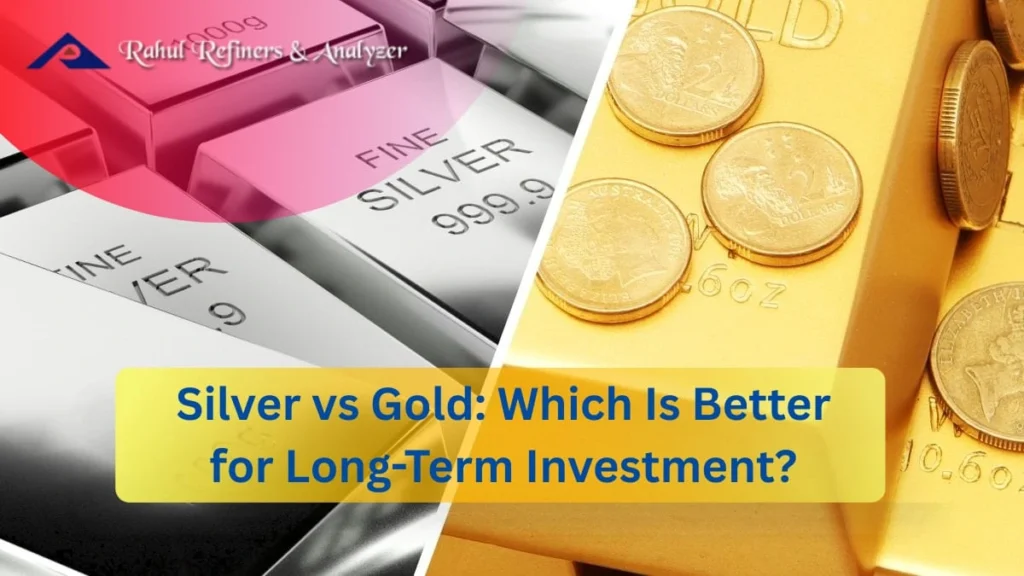Sayanava Sinha Roy
18.03.2025
What Documents Do You Need to Sell Gold Legally?
Selling gold can be a quick way to get cash, but ensuring a legal and hassle-free transaction requires the right paperwork. Whether you are selling old jewelry, gold coins, or bullion, buyers will need specific documents to verify the transaction. Without these, you might face unnecessary delays or even legal complications.
Table of Contents
Understanding the required documentation helps protect both the seller and the buyer, ensuring transparency and security. If you’re looking to sell gold legally, here’s everything you need to know about the documents required to complete a legitimate transaction.

Why Proper Documentation is Essential for Selling Gold
Before diving into the list of required documents, it’s important to understand why they matter:
- Prevents fraud and theft – Ensures that the gold being sold is not stolen or illegally obtained.
- Ensures compliance with legal regulations – Many jurisdictions have strict gold-selling laws.
- Protects both buyers and sellers – Ensures the seller receives fair payment while the buyer gets authentic gold.
- Avoids future disputes – Proper paperwork can serve as proof of the transaction if any issues arise later.
- Enhances trust – Buyers are more likely to offer better rates when proper documentation is provided.
Key Documents Required to Sell Gold Legally
1. Government-Issued ID Proof
A valid identification document is mandatory when selling gold. This is necessary for verifying your identity and ensuring that the transaction is legal. Acceptable forms of ID include:
- Aadhaar Card
- PAN Card
- Passport
- Voter ID
- Driver’s License
2. Purchase Invoice or Bill
Having an original invoice or bill of purchase is beneficial for a smooth transaction. It helps:
- Establish ownership proof of the gold.
- Determine the gold’s authenticity and purity.
- Provide clarity on the original purchase value.
3. Hallmark Certification (If Available)
If your gold is hallmarked, carrying its certification can help buyers determine its purity. Hallmarking follows BIS (Bureau of Indian Standards) guidelines and ensures that the gold meets industry standards.
4. PAN Card for High-Value Transactions
If the transaction value exceeds ₹2 lakh, providing a PAN card is mandatory as per Indian income tax laws. This helps track high-value transactions and prevents tax evasion.
5. Authorization Letter (For Third-Party Sales)
If you’re selling gold on behalf of someone else (like a family member), you may need an authorization letter signed by the owner along with their ID proof.
6. Bank Account Details for Payment
While cash payments are common for small transactions, electronic transfers require valid bank account details. Providing your bank information ensures a transparent and traceable transaction.

How to Ensure a Smooth and Legal Gold Selling Process
When planning to sell gold legally, follow these steps to avoid common pitfalls:
1. Research Gold Prices in Advance
- Check current gold rates to avoid being underpaid.
- Use reputable sources like the India Bullion and Jewellers Association (IBJA) for live rates.
2. Choose a Trusted Gold Buyer
- Sell to a gold buyer with a good reputation and transparent pricing.
- Ensure they use karat meters or acid tests for accurate gold evaluation.
- Read customer reviews to verify the authenticity of the buyer.
3. Verify the Weighing and Testing Process
- Always get your gold tested in front of you.
- Ensure the weighing machine is properly calibrated.
- Ask for a breakdown of the valuation process.
4. Ask for a Payment Receipt
- Always request a written receipt mentioning the gold’s weight, purity, and price.
- Keep a copy of the receipt for your records.
- The receipt should include details of deductions, if any.
5. Be Aware of Tax Implications
- If the gold sale falls under capital gains tax, ensure you understand your tax liabilities.
- For transactions above ₹2 lakh, PAN details and tax compliance are essential.
Where to Sell Gold for the Best Price?
When looking for the best place to sell gold, consider these factors:
- Gold Buying Companies: Established buyers offer better rates and secure transactions.
- Jewelry Shops: Some jewelers buy back gold, though rates may vary.
- Banks (Limited Options): Banks sell gold but generally do not repurchase it.
- Online Gold Buyers: Some reputable platforms offer doorstep evaluation and pickup services.

FAQs on Selling Gold Legally
1. Can I sell gold without a purchase bill?
Yes, but the buyer may conduct additional purity tests and verification checks before purchasing your gold.
2. Is there a tax on selling gold?
If the transaction exceeds ₹2 lakh, it must be reported under income tax laws, and capital gains tax may apply.
3. How do I know if my gold is real?
A BIS hallmark certification is the best way to confirm authenticity. You can also get it tested by a professional gold buyer.
4. Can I sell inherited gold without an invoice?
Yes, you can, but you may need additional documents like a legal heir certificate in some cases.
5. How long does the gold-selling process take?
A standard gold transaction usually takes between 30 minutes to an hour, depending on testing procedures.
6. Can I get cash immediately after selling gold?
Yes, most buyers provide immediate cash for small transactions. However, large transactions may require electronic transfers.
7. Are there any hidden charges when selling gold?
Reputable buyers provide a breakdown of charges, but always clarify any deductions beforehand.
Selling Gold the Right Way: Key Documents & Legal Guidelines
Ensuring that you have the right documents to sell gold legally can make the process smooth and hassle-free. From ID proof to purchase invoices and purity certifications, proper paperwork not only protects your rights as a seller but also ensures compliance with legal standards.
If you’re looking for a renowned gold buyer, choosing a reputable and licensed buyer is crucial for a fair and secure transaction. By following the right process and staying informed, you can confidently sell your gold while getting the best value for it.



